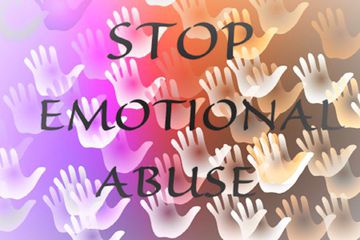Emotional Abuse Is Real: Here's How You Can Handle It
With the advent of WhatsApp, group conversations have now become a new trend. Most of the girls-only WhatsApp groups I am part of revolve around some common topics--usually women sharing incidents of emotional abuse and seeking advice. Be it in the domestic setting or the professional world, women are often let down, humiliated or overpowered, being the ‘weaker sex’. I think emotional abuse is gender neutral. Men and women, both, experience it alike; the circumstances may differ.
Constant criticism, rejection, disapproval, or domination are some ways we recognise emotional abuse, but sometimes, it can be so subtle that even the victim fails to identify it. Emotional blackmail with the silent treatment, withdrawal and neglect is even more damaging, as the victim feel pressurised and suffocated, but still keeps giving in on the demands on the abuser, gradually losing their self-confidence.
If you can relate to any of these incidents, you could be a victim or witness of emotional abuse.
Why do people hesitate to address emotional abuse at home?
-
Fear of losing relationships
-
Financial dependence
-
Lack of support from family and friends
-
Social status or position
-
Inability to accept relationship failure
It’s more difficult to respond to such behaviour when it is at your workplace. That more people change jobs because of their manager than the money is true. But a bad boss is not the only potential abuser; it could be co-workers or colleagues who damage your peace and emotional security at work by degrading you (and/or your work), spreading rumours about you, or isolating you. Most people feel it, but still find it hard to bring it up at work.
Why it is difficult to stop emotional abuse at work
-
Fear of losing the job
-
Thinking of it as common workplace behavior, as it happens with others too
-
Unsupportive/unempathetic management and policies
The damage it does to you
Emotional abuse will leave you in self-doubt, always apologising, even for insignificant mistakes. You lose confidence in yourself and feel trapped. You struggle to make even simplest of decisions and choices. You start being over-sensitive.
What can you do?
Recognise it: Realise the fact that emotional abuse is as damaging as physical abuse. Just because bruises do not show does not mean they do not exist. In fact, the pain of physical violence heals with time, but wounds of emotional abuse never heal until treated. Acceptance is the first step.
Confront: Understand that you are encouraging the abuser by taking this behaviour silently. Stand up for yourself. Talk, share and confront. Let the abuser know you that understand the unfair treatment and emotional blackmailing, and that you have the courage to challenge it. It usually intimidates them.
Talk, Share: Go out, talk to people. Share it with your friends and seek counselling if necessary. Often, people shy away from sharing their personal problems and prefer to bear it alone. This gives more power to the abuser. Surround yourself with positive people, relationships and situations to heal yourself.
Leave: Stop the cycle of abuse by changing your response to abusive behaviour. Trust yourself, confront and move out when required.
Do you know someone who took a stand and moved out of an emotionally abusive relationship? Share it with us for more inspiration.















